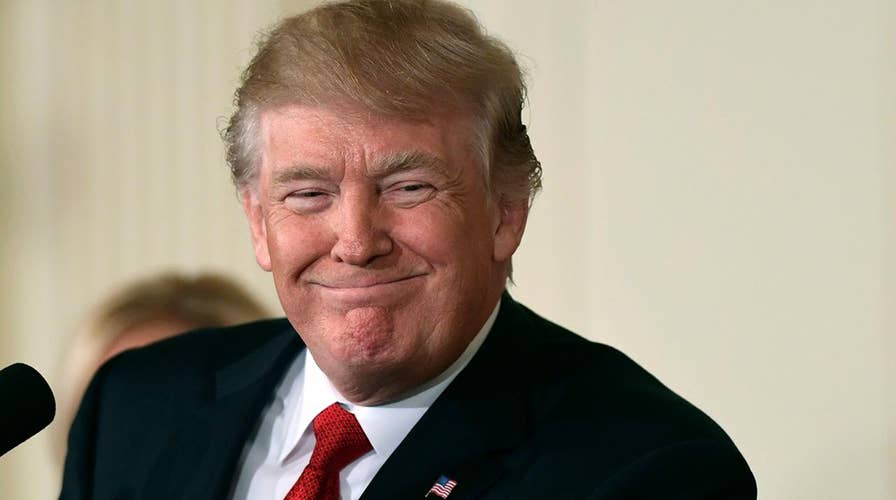A Washington Post story yesterday described President Trump as really, really mad. In fact, he was said to be "livid."
That, the story said, was at a July meeting when he asked Rex Tillerson, Jim Mattis and others why he should prop up the Obama nuclear agreement with Iran when he considered it a disaster.
"'He threw a fit,’ said one person familiar with the meeting. "... He was furious. Really furious. It’s clear he felt jammed."
So H.R. McMaster came up with a plan to get Trump to "compromise," the Post says.
The key thing here—beyond the geopolitical implications of decertifying the Iran deal—is that unnamed sources are portraying the president as a hothead who has to be schooled by his top aides.
The same theme was struck in the NBC report that Trump "said he wanted what amounted to a nearly tenfold increase in the U.S. nuclear arsenal during a gathering this past summer of the nation’s highest-ranking national security leaders, according to three officials who were in the room." The president had to be told that the stockpile has been dramatically reduced since the 1960s because of arms-control agreements.
And that July meeting led to what NBC reported last week was Tillerson telling colleagues that his boss is a "moron." (His spokeswoman denied this after the secretary of State declined to address it at a news conference.)
This is the emerging media narrative about Trump: that he's constantly getting mad, that he doesn't know much about foreign policy, and that his generals and advisers have to save him from himself.
Think for a moment about the motivation of the sources who whisper these details to reporters: Are they trying to make the boss look bad, or build themselves up? And if they were engaged in a conscious strategy, wouldn't it be better to do it quietly?
Trump has denied the stories, sometimes with backing from top officials, and turned his ire on the media. He called the NBC nuclear meeting "pure fiction" and said he believes the sources are made up. NBC anchor Lester Holt says the network had three sources in the room.
In escalating his attacks on "fake news," the president is now suggesting that the government take action, tweeting:
"Network news has become so partisan, distorted and fake that licenses must be challenged and, if appropriate, revoked. Not fair to public!"
In fact, the FCC doesn't license national networks, only local stations. And those decisions are supposed to be based on community service, not news content. So that's a non-starter.
The president has every right to complain about negative or distorted coverage, but talking about lifting licenses, in a country with a First Amendment, is troubling.
I don't think Trump really wants to go down that road. He is known for venting his displeasure with the press in very strong terms. He may or may not be mad in White House meetings, but he's clearly quite angry with the media.





